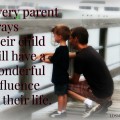Parents breathe a sigh of relief when their children graduate high school and reach the age of independence. Adult children make plans for their future and begin to make a life for themselves. But what do parents do when their adult children are not motivated for a positive future? How should parents help when great tribulation is created in a troubled mind?
Everyone has struggles in their life, but those adult children with behavior difficulties, drug addictions, and sexual promiscuity need an understanding heart from parents. Those children are still yours, yet adult children need to learn to stand on their own, be respectful and contribute to society in a positive way.
 Evaluate the situation
Evaluate the situation
This takes some unbiased thinking as a parent. Pinpoint where the problem or challenge began. Was it online pornography, hurtful friends, violent behavior, hiding an alcohol or drug addiction? There can be any number of reasons a child loses his way. Begin to take steps in what is required for recovery. Find places where there is help and follow through on a plan where everyone can work together for a positive outcome.
One single mother was distraught to find her son sneaking on the family computer at night to watch pornography. When she confronted him, he was angry and denied it. But as she asked further questions and reminded him of how poisonous pornography truly is, he eventually apologized, and they worked out a solution to help him stay away from Internet pornography completely.
Stick to your guns
Everyone needs rules and guidelines. If you have them established at home, then there is no question of what is expected. From Empowering Parents, Debbie Pincus says, “If your child is about to move back in with you, I think you need to sit down and hammer out some guidelines. Having a plan ahead of time is always good because everyone will know what to expect.”
 If there is a plan already in place for adult children to follow to independence, peace can be restored at home and they know where they stand. If an adult child does not want to follow the rules of the house, don’t let her stay at home. It’s not fair to the other children, and it’s not fair to the parents.
If there is a plan already in place for adult children to follow to independence, peace can be restored at home and they know where they stand. If an adult child does not want to follow the rules of the house, don’t let her stay at home. It’s not fair to the other children, and it’s not fair to the parents.
She should take responsibility for being a part of the family and keeping the rules. Stick to your guns and incorporate a little “tough love” when she has to leave. Hopefully, your child will eventually realize she needs to take responsibility for her actions and change for the better.
Praise and promote
Find good habits and point out special gifts that your child possesses, and tell him you love him. For one mother, praising her son was one of the hardest things she had ever done. He had been abusing another child secretly. She had to help them both recover. Therapy and guidance counselors were visited on a weekly basis. She had to tell them she loved them both but hated what one did to his own sibling. This process took years to help heal both children but hearing the words “I love you” and helping that child find his way helped tremendously in his recovery. Remember the kindness of Jesus Christ in helping those adult children with troubles.
Get professional help
 Do not be afraid to find outside help. Many times a troubled adult child will need services from other sources which a parent cannot do for the child. This might be painful for parents as Randi Kreger says from Gaining Support When You Have a Troubled Adult Child… “When adult or adolescent children are troubled, others may believe parents must have been at fault, somehow. They may also think they are being kind to the parents by avoiding this embarrassing subject.
Do not be afraid to find outside help. Many times a troubled adult child will need services from other sources which a parent cannot do for the child. This might be painful for parents as Randi Kreger says from Gaining Support When You Have a Troubled Adult Child… “When adult or adolescent children are troubled, others may believe parents must have been at fault, somehow. They may also think they are being kind to the parents by avoiding this embarrassing subject.
These mistaken beliefs can leave parents of troubled children floundering as they seek help and solace from others.” Don’t be afraid to seek outside counsel for your adult children. It might mean the difference between night to day in recovery. Getting help is much more important than what the neighbors may say.
Let Go
Sometimes parents just have to let go of their adult child. It’s the hardest thing you will ever do but for adult children to better understand consequences of their actions, they have to live their life with their own choices. Jail time, community service or whatever it takes will actually help your child come to understand what is expected of him or her to live a productive life. Let your adult children go to fill those consequences, and then they can come home a renewed person and start out their new life clean and forgiven.
Never give up
Pray always for this child and never give up on him. Tell him you won’t give up and continue to hope this child will one day return with his life in order. Never giving up is not the same as letting go. Parents can let go of their adult children because of bad choices to live their own life while never giving up on their opportunity to change their behavior.
John K. Carmack tells us, “If you cannot seem to reach your daughter or son now, you can at least keep trying and keep loving them, for the very will to reach out, nurture, and extend help to another is an act of love that does not always go unnoticed.”
It’s never too late to be a parent. A troubled mind is a cry for help. As we work with our troubled adult children, they will begin to appreciate all you do for them. It might not come quickly but sometime in their life, they will understand your love for them. Until then, keep on trying.
About Valerie Steimle
Valerie Steimle has been writing as a family advocate for over 25 years. As a convert to The Church of Jesus Christ of Latter-day Saints, she promotes Christian living in her writings and is the mother of nine children and grandmother to twelve. Mrs. Steimle authored six books and is a contributing writer to several online websites. To her, time is the most precious commodity we have and knows we should spend it wisely.
To read more of Valerie's work, visit her at her website, The Blessings of Family Life.








Nice article. Parenting adult children is hard. You can’t tell them what to do anymore. When my kids were minors, stewardship trumped agency. As adults, even under my roof, stewardship could only be guidance. However, under my roof meant my house rules. They still had to let me know where they were and knew I couldn’t fall asleep until they were home. Luckily, they respected that. It’s been about four years since I’ve had my own children living with me. But, even when we’re together, it’s so easy for me to see what they could be doing better, easier, wiser. Why doesn’t 60+ years of experience count for anything by my own children? LOL!